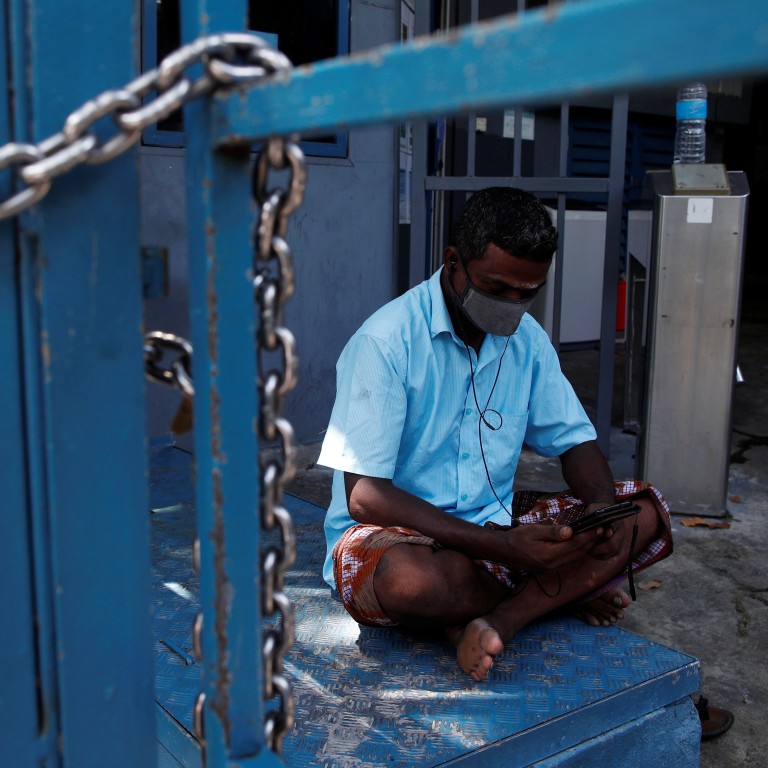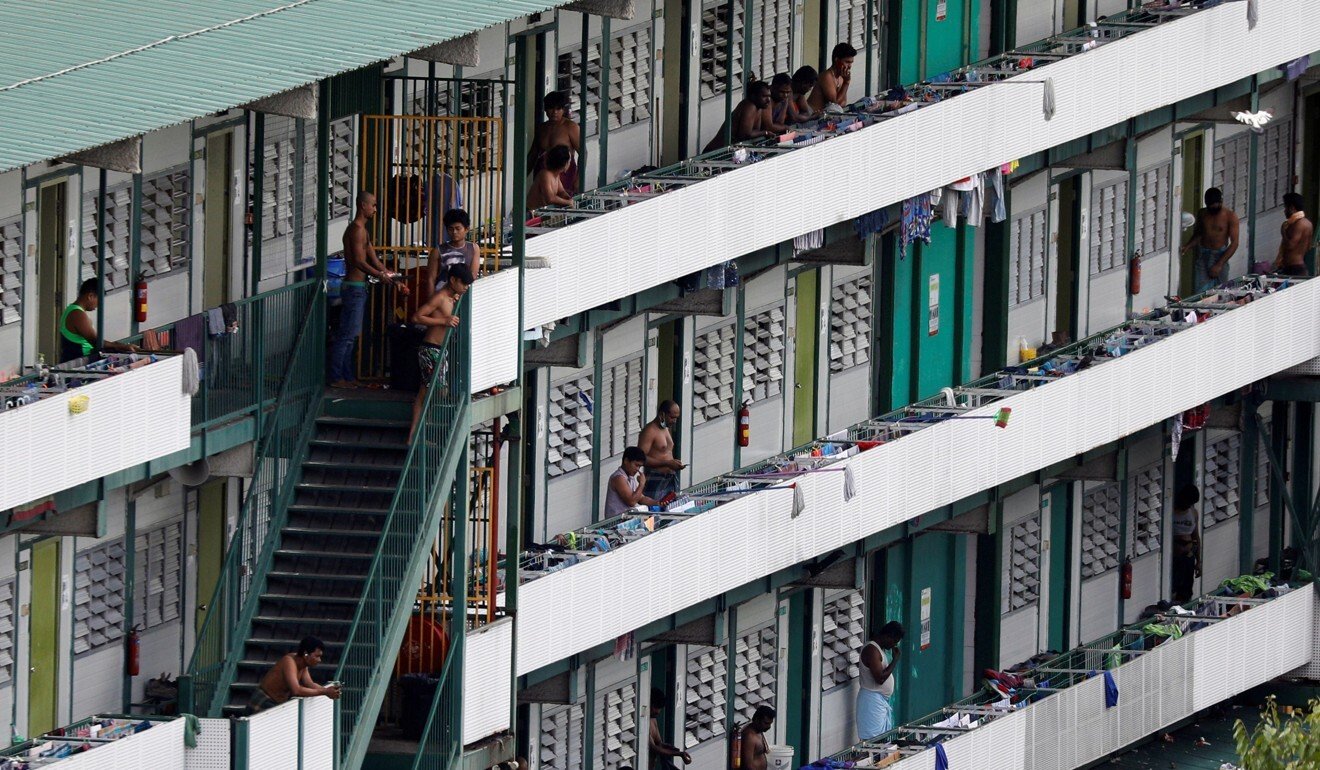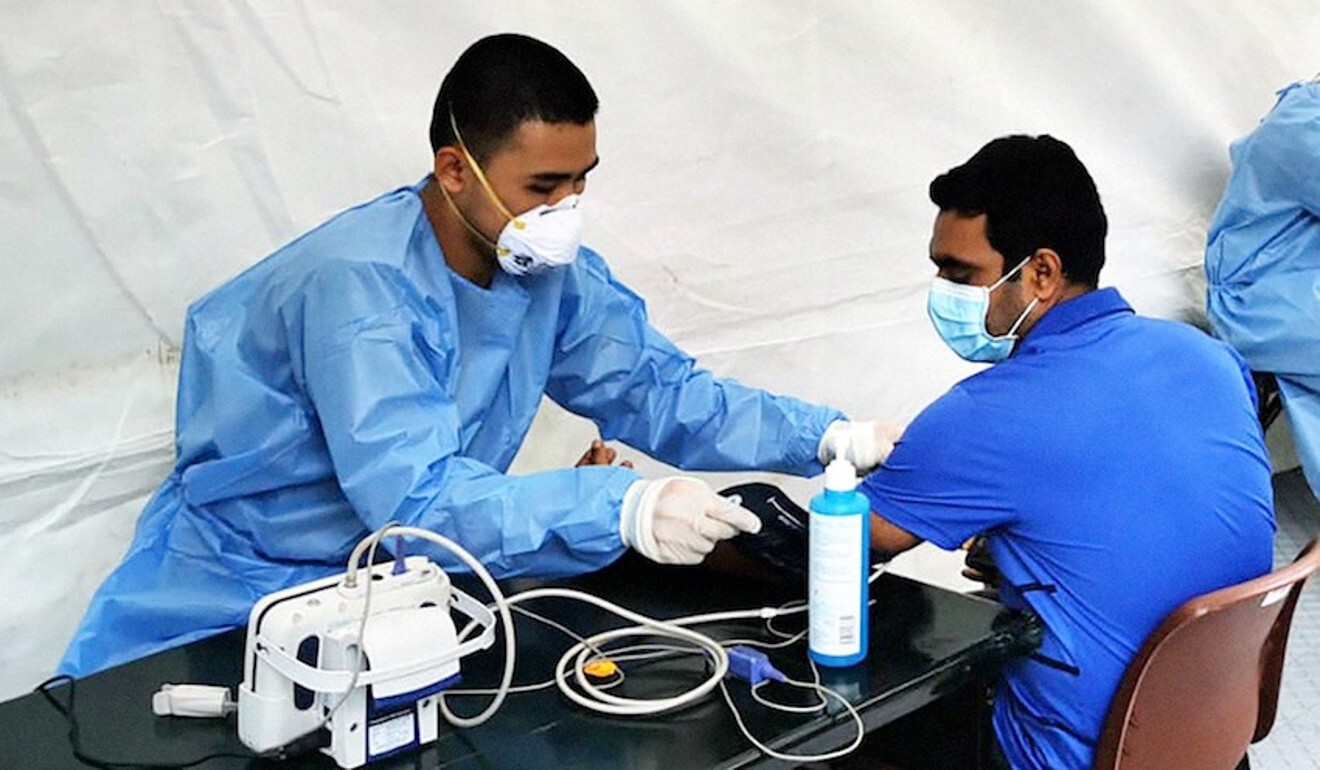
Coronavirus: Singapore urged to consider migrant workers’ mental health amid ‘circuit breaker’ lockdown
- More than 323,000 workers in the city state are currently confined to cramped dormitories and other places of residence with up to 20 people per room
- An online survey conducted this month found the majority of migrant worker respondents were expressing feelings of sadness and depression
More than 323,000 migrant workers in the city state are currently confined to 43 mega-dormitories and 1,200 other similar places of residence where they are largely restricted to cramped rooms which house up to 20 people.
Why Singapore fears a ‘hidden reservoir’ of Covid-19 cases
Such conditions mean the restrictions imposed on April 7 to fight the coronavirus – which were initially set to end on May 4 – have proved far more gruelling for migrant workers than other residents, who are allowed to leave their homes.

Most of the more than 100 workers who took part in an online survey Dutta conducted from April 7 to April 20 expressed feelings of sadness and depression, with 68 per cent picking the options “somewhat agree” “agree” or “strongly agree” when asked if they were depressed as a result of the coronavirus.
Coronavirus: can Singapore’s health care system handle a surge?
When asked if they were sad, 70 per cent picked the same three options out of the seven they were offered – strongly disagree, disagree, somewhat disagree, neither disagree nor agree, somewhat agree, agree and strongly agree – all of which are standard choices under what is known as a Likert scale.

Singaporean migrant rights group HOME and the Centre for Culture-Centered Approach to Research and Evaluation, or CARE, think tank at Massey University headed by Dutta said in a joint statement that the findings of the survey were deeply concerning, with conditions for social distancing still not in place in the dormitories.
Military and other government agencies have since fanned out to look into the welfare and safety of the workers, but HOME and CARE said the survey findings showed “structural barriers” remained for the implementation of preventive measures.
It said safe distancing remained “almost impossible” because of overcrowding in the workers’ rooms, and flagged poor standards of cleanliness of toilets, and a shortage of soap and water.
In the survey, when asked about whether they agreed that they have adequate soap and water, 18 per cent strongly disagreed, 23 per cent disagreed and 16 per cent somewhat disagreed.
And while government officials have repeatedly stressed that workers will be paid during the lockdown, the survey findings showed the workers thought otherwise.
Of the respondents, 53.5 per cent said they strongly disagreed with the statement “I am confident that I will get my salary although I have not been working because of Covid-19”, while 20.2 per cent picked “disagree” and 10 per cent picked “somewhat disagree”.

